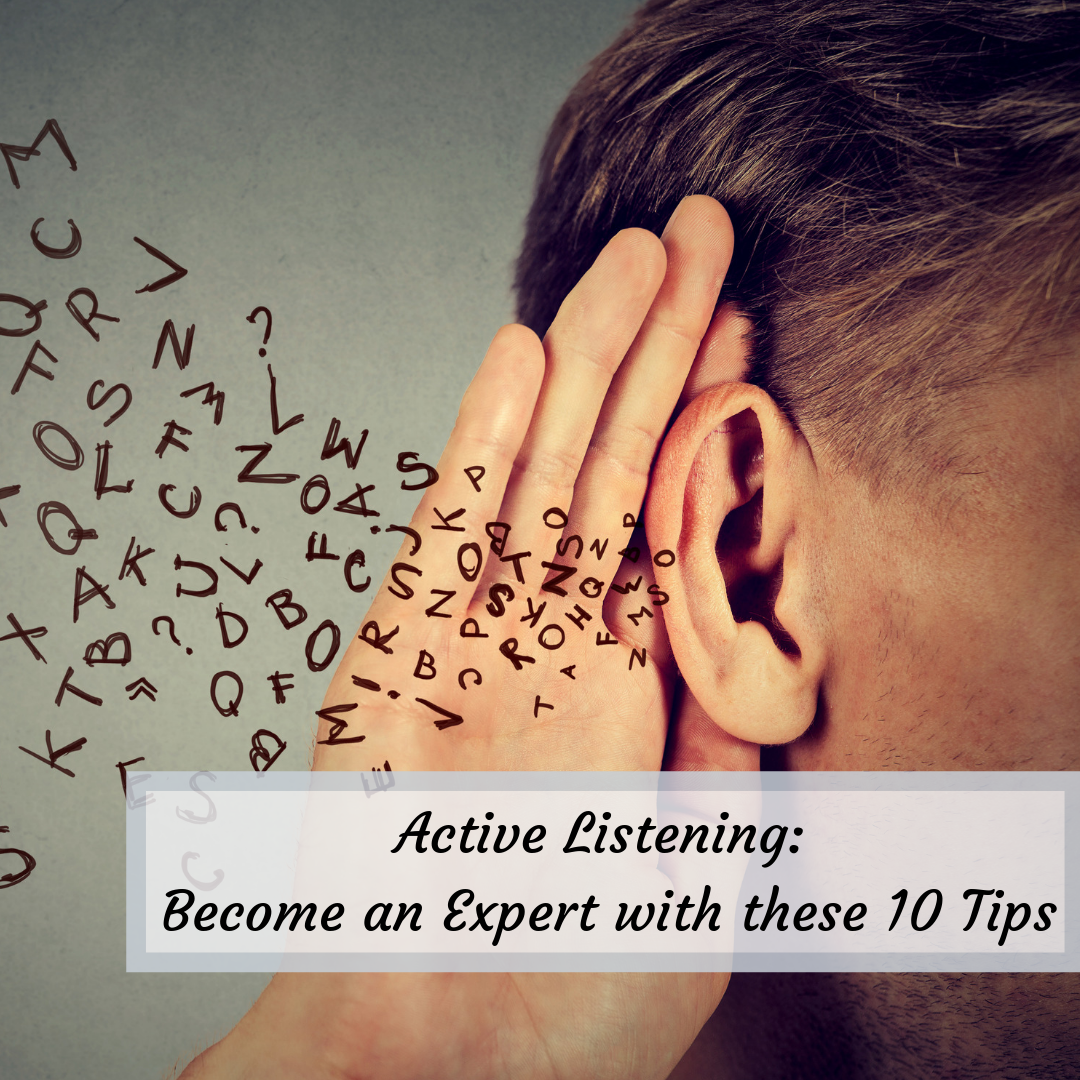Did you know that you have the power to help people without even moving a finger? This skill will not only drastically improve your relationship with your child, but also with everybody else. You will be able to understand people better, you will be more likely to get what you want, and you will be more liked by others because you will be able to connect with them much easier. This skill is called: Active listening. I’m sure you have heard about this before, but do you really know why this is so important and do you know how to do it?
Interpersonal communication is a broad and complex subject that contains at least eight basic components: the communicators, a message, noise, feedback, context, and channel. In this blog post, I will focus on a crucial area of interpersonal communication which is active listening (associated with the feedback). Active listening is a crucial component of empathy and mutual respect in any relationship.
Why is active listening so important?
The big difference between just listening and active listening is the amount of effort you put into it, this is exactly why it is called “Active”. You are consciously doing everything possible, so the other person feels understood and free to express him/herself. Probably the best definition of active listening that come to mind is the one made by Rogers and Farson in 1979 in which the define it as something that will truly be an effective way to bring changes in people. FBI hostage negotiators Mike Webster and Gary Noester use active listening as a key tool in dealing with abductors, “Negotiators can use active listening skills to help resolve critical incidents involving expressive subjects.” It is used in mediation as well because it is an effective way of creating a connection with the people you are helping. When we use Active listening, we create closeness, connection, and confidence, not only is it a great tool to obtain more information, but it has an amazing healing power over the person who is talking to you.
In this blog I will share with a few strategies that will really get you results, you will start noticing how without doing much, people will feel better just by speaking with you. People will come to you to feel more confident, to express their emotions and in when making important decisions.
1. First and foremost, do not judge!
This is possibly the most difficult part of active listening, not judging or drawing conclusions. This is what we get trained to do when studying psychology. If this person says something you don’t agree with, or maybe shocks you, do not automatically draw conclusion in your head and label this person as crazy or wrong; the moment you do this , the minute you start acting as the judge, you have completely lost your ability to actively listen and be useful for the other person.
2. Do not interrupt
Very difficult to do as well right? Most of us listen to respond and to give advice and then end up talking about themselves. When you interrupt, this is the message you are sending:
I don’t feel like listening to you
What I have to say is more important
I want to win this conversation and prove I know best
3. Do not automatically give advice
“That happened to me once, I completely understand…” most people like to find their own solutions, they just need someone to listen to their problems or thoughts. If you have great advice or an idea, wait until the other person has finished sharing his/her thoughts, make an effort to empathize and only then give you opinion.
4. Paraphrase
A great tool to show that you are listening and to really pay attention to the other person is to repeat what you just heard, regardless of whether you agree or not. By doing this, the other person becomes more motivated to keep talking and you are showing him/her that you really listened. Research says that even if you only repeat 4 words of what the other person said, you cause the same effect on the other person which is showing that you are truly listening.
5. Reflect feelings
A conversation does not have to be limited to only sharing thoughts or opinions. You can also reflect on emotions. Feelings are bit more complex to uncover but they are essential, they create a much stronger connection between both people because it shows empathy. The trick is to not only paraphrase what you just heard but try to interpret it in terms of feelings; in other words, what is the other person feeling? After combining both what the person said and attaching it to a feeling it would look like this, “So did you feel…. when…. happened? even if you are wrong about the feeling, this technique is very useful to encourage someone to open up emotionally because you are giving them an opportunity to either agree with you or disagree and talk about another feeling.
6. Use questions to get more information
A great way to show interest during a conversation is by asking questions; however, it is important to know what kind of questions are useful and which ones are not.
Open-ended questions
These types of questions are very useful when we want to get more information. They start with What, When, Where, How, or Who. Be careful with questions that start with Why, they can make the other person feel judged and the other person might react defensively.
Closed-ended questions
The purpose of these type of questions is to clarify. They are answered with a “Yes”, or “No”.
7. Help the person clarify feelings and thoughts
There are natural pauses in every conversation. A great technique to motivate and elaborate on a certain topic is to clarify their thoughts with open-ended questions, “What exactly are you worried about with…” again, this is why it is important learn how to ask open-ended questions. Another option is to clarify thoughts, “Would you rather… instead of….” This encourages the person to go deeper into his point of view so he/she can better explore feelings, thoughts, and alternatives. Remember, the best way to help another person is to ultimately uncover the emotions that he/she might be experiencing; when you are able to get to that level, the conversation has gone much deeper into a personal level. Look at this example so you can see the difference:
- “I can’t believe this person said this to you when you were having an argument!”
- “How did it make you feel that this person said these things to you when you were having an argument?”
See the difference?!
8. Silence
One aspect of having a conversation that people are sometimes uncomfortable with is: silence. Silence is extremely useful in any conversation because it gives the other person time to think about what to say, at times we make the mistake of not giving this time because we feel uncomfortable. Silence gives the other person the opportunity to calm down and think rationally.
9. Remember you speak with your body.
Body language and nonverbal communication is a world in its own. If you want to show that you are paying attention, make sure you are facing the person, look him/her in the eyes, keep an open body posture (do not cross your legs and arms) use your head and face to show interest (for example raising your eyebrows and moving your head a bit, up and down). We transmit so much information with our body and facial expressions! When you are having a conversation, slightly tilt your head and angle your chin down, this makes you look friendlier than if put your head straight and you put your chin up which makes you look more arrogant. Lastly, use the mirroring technique: slightly reflect the body posture of the person you are speaking with, this generates empathy and connection, but be aware this must be done discretely; you probably do it already and you are not aware.

10. Use positive reinforcement
A great way to show you are paying attention is to use words that reinforce what the other person is saying, “Yes”, “Aha”, “Right”, “I understand”, are a few examples of words that reinforce and encourage.
Remember…
- The most important goal with active listening is to connect with the feelings of the other person, when you have been able to get in deeper than the surface of a conversation to reveal the hidden emotions, then the conversation completely changed, and you developed a deeper connection with this person.
- Your job is not to solve the other person’s problems; your main goal is to be a tour guide and help this person uncover and recognize the hidden emotions so he/she can find a possible solution by him/herself.
- It is OK to give your opinion and thoughts but make sure it is after you empathize and understand the other person’s thoughts and feelings.

